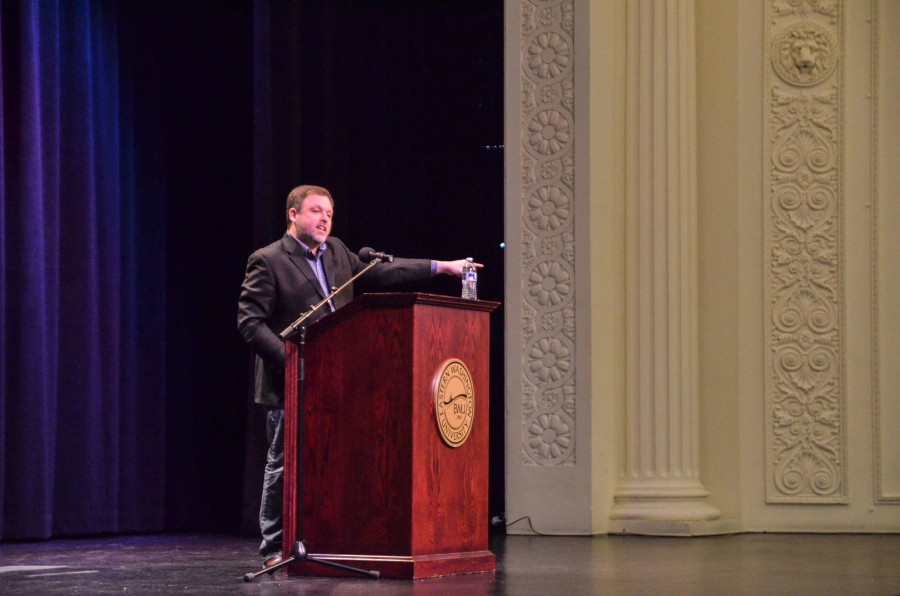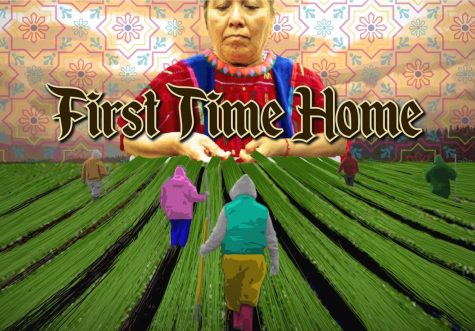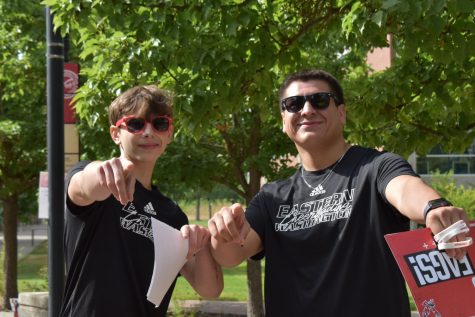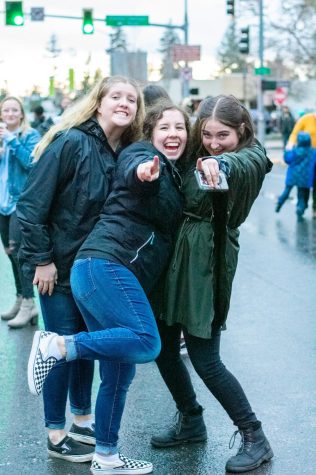Tim Wise addresses issues of racial injustice in US
Tim Wise raises awareness in combating racism.
March 5, 2015
Showalter Auditorium was filled with students, faculty, staff and community members who came to hear Tim Wise, antiracism educator and writer, discuss combating racism and how people of color are faced with discrimination and injustice in the U.S. today.
The event on Feb. 24 had attendees resorting to sitting on the floor because the venue was so full. The discussion lasted longer than the hour originally allotted, which allowed people to ask questions of Wise. EWU Dining Services provided a banquet following the event.
Wise graduated from Tulane University in 1990 with a B.A. in political science with a Latin American studies minor. He has spent the past 20 years speaking at over 1,000 colleges and high schools in all 50 states about issues of white supremacy and racial injustices. The author of six books on the topic, Wise is a frequent correspondent on CNN and MSNBC to discuss race issues.
During his lecture, Wise incorporated a bit of humor, at one point exclaiming, “We didn’t break away from the British last Wednesday,” to shed light on specific race issues currently occurring in the U.S. One of the first things he remarked upon was the irony of a white man taking the stage to talk about an issue that does not directly affect himself. Wise argued that racial equality is not going to be achieved until a black or brown person can stand on the same stage and give the same talk that he did.
Wise mentioned Black History Month and the danger that comes along with commemoration of progress. He said, “[While it is] important to acknowledge the victories, the danger in commemoration is not looking forward at what still needs to be addressed.”
Wise believes that what happened with Mike Brown in Ferguson, Missouri, issues with border patrol, voting discrimination and the use of religion to excuse intolerance represent racial issues in the U.S. that need to be addressed.



















row • Mar 19, 2015 at 12:12 pm
this article literally contained no content whatsoever